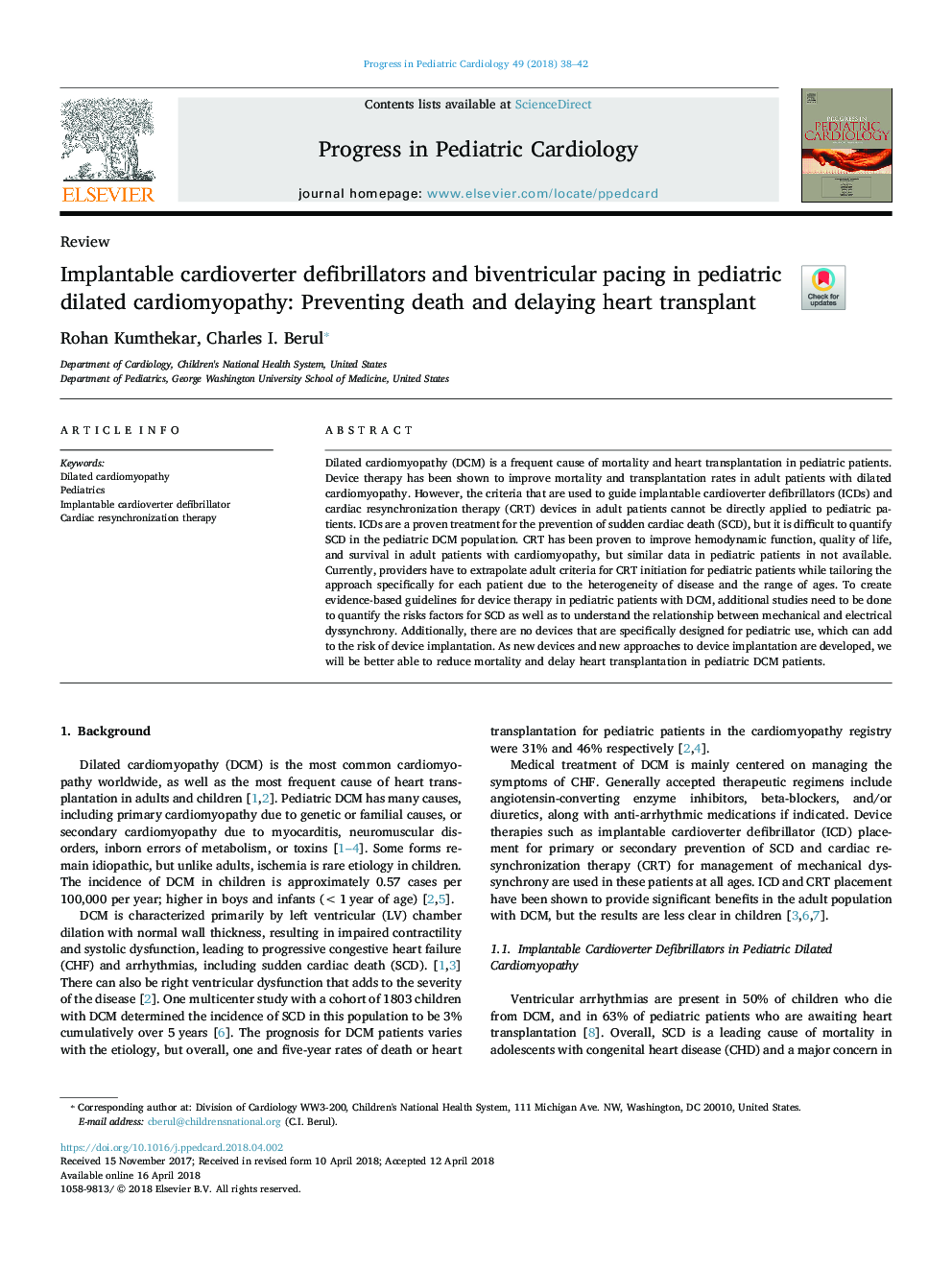| Article ID | Journal | Published Year | Pages | File Type |
|---|---|---|---|---|
| 8675310 | Progress in Pediatric Cardiology | 2018 | 5 Pages |
Abstract
Dilated cardiomyopathy (DCM) is a frequent cause of mortality and heart transplantation in pediatric patients. Device therapy has been shown to improve mortality and transplantation rates in adult patients with dilated cardiomyopathy. However, the criteria that are used to guide implantable cardioverter defibrillators (ICDs) and cardiac resynchronization therapy (CRT) devices in adult patients cannot be directly applied to pediatric patients. ICDs are a proven treatment for the prevention of sudden cardiac death (SCD), but it is difficult to quantify SCD in the pediatric DCM population. CRT has been proven to improve hemodynamic function, quality of life, and survival in adult patients with cardiomyopathy, but similar data in pediatric patients in not available. Currently, providers have to extrapolate adult criteria for CRT initiation for pediatric patients while tailoring the approach specifically for each patient due to the heterogeneity of disease and the range of ages. To create evidence-based guidelines for device therapy in pediatric patients with DCM, additional studies need to be done to quantify the risks factors for SCD as well as to understand the relationship between mechanical and electrical dyssynchrony. Additionally, there are no devices that are specifically designed for pediatric use, which can add to the risk of device implantation. As new devices and new approaches to device implantation are developed, we will be better able to reduce mortality and delay heart transplantation in pediatric DCM patients.
Keywords
Related Topics
Health Sciences
Medicine and Dentistry
Cardiology and Cardiovascular Medicine
Authors
Rohan Kumthekar, Charles I. Berul,
